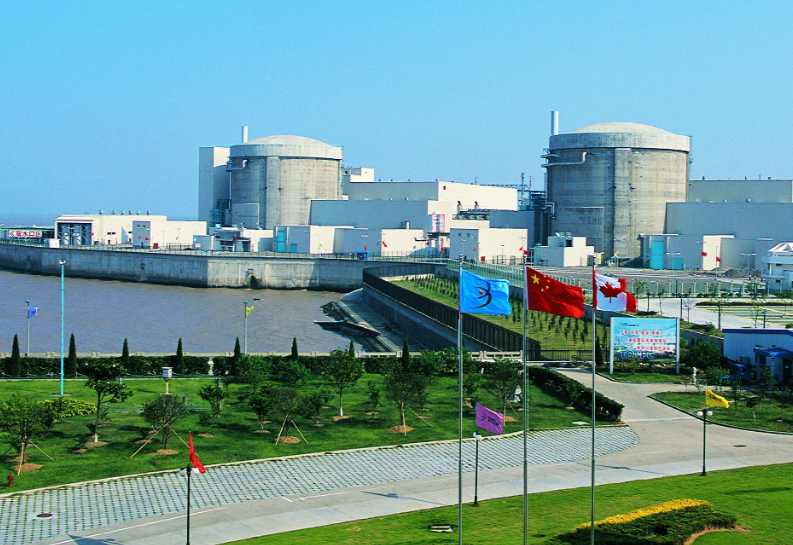Good news or bad news? -- Why do you want to develop nuclear power
In the official report of China's nuclear power, one can often hear a word "three generations of reactors", which is a sign of advanced nuclear power in China. So what is a three-generation pile? In fact, the third generation reactor is exactly the same as the second generation reactor, which is also a light water reactor, a heavy water reactor and a gas cooled reactor. After the Chernobyl incident, the United States and Europe respectively issued the "Advanced light water reactor user requirements" documents, namely the URD document (utility requirements document) and the "European User Requirements for light water reactor nuclear power plants". The European utility requirements document (EUR) further defines the requirements for preventing and mitigating serious accidents, improving safety and reliability, and improving human factors engineering. Internationally, nuclear power units that meet the URD file or EUR file are usually called third-generation nuclear power units. So in fact, the third-generation reactor is just a safer second-generation reactor, and there is no revolutionary change from a technical point of view.

The fourth generation reactor is also called the advanced reactor, which is a new generation of reactors that is truly changed from the reactor type. At present, the four generations of reactors are basically staying in the design drawings, the original prototype and even the experimental reactor level, the fastest progress is to enter the construction of commercial demonstration reactors, and there is still a distance from practical application. (Specifically, this refers to civilian, not military applications.) At present, there are mainly six types of fourth-generation reactors that are considered to have the most potential, which are high-temperature gas-cooled reactors (using He gas as a coolant), supercritical pressurized water reactors, molten salt reactors (before the Chinese Academy of Sciences invited Taoist monks to open light foundation ceremony in Gansu is this), gas-cooled fast reactors, lead-cooled fast reactors and sodium-cooled fast reactors. You can see that there are three types of reactors called fast reactors, fast neutron reactors, that don't need moderators. Among them, the sodium-cooled fast reactor is a relatively mature technology, and the Beijing Experimental Fast Reactor in Beijing Fangshan and the demonstration fast reactor started in Fujian Xiapu are of this type. Most of the fourth-generation reactors have various advantages, such as high exit temperature, zero core meltdown risk and even fast neutron proliferation, but due to the limitations of technological development, there are still many difficulties to overcome.
2. Nuclear power development in the world and China
After introducing the basic types of nuclear power plants, the author will introduce the development of nuclear power in the world and China, especially to see if China is developing nuclear power throughout the country. According to the 2017 annual report of the IAEA (International Atomic Energy Organization), by the end of 2017, there were 448 nuclear power reactors in operation in the world, and the total number of reactors under construction reached 59. The pie chart below is the distribution of these 448 reactors, and China is included in the others in this statistics. Among them, there are 45 nuclear power reactors in operation in China, accounting for 10.04%; China has 11 reactors under construction, accounting for 18.64%. From this point of view, China is indeed focusing on the construction of nuclear power plants.
The number of reactors is one indicator, but more important is the share of nuclear power in the country's total electricity generation. France has always been a famous nuclear power country in the world, at the end of 2017, France's nuclear power generation accounted for 71.6%, South Korea was 31.7%, the United States and Russia are close to 20%, and China is less than 4%. The reason why China's nuclear power has been built at a high speed these years is largely due to the lack of nuclear power in our country in the past. And nuclear power is a high-input industry, when the economy is not developed enough, can not effectively develop. With the development of the economy in recent years, we have begun to build nuclear power plants of our own. Whether to develop nuclear power or not will be discussed in the next section.
There has been a rumor on the Internet that after the Fukushima nuclear power plant accident, most countries in Europe and the United States have taken an attitude of giving up nuclear power, and only China is in large-scale construction. There are even so-called public intellectuals who criticize China's local and even central governments for ignoring the lives of the people and the safety of future generations for the sake of political achievements. The rhetoric is generous, as if the Chinese government, which built the nuclear power plant, is evil and should be overthrown. But is this really the case? Has there really been a qualitative change in the way governments around the world view nuclear power before and after Fukushima?
- ABB
- General Electric
- EMERSON
- Honeywell
- HIMA
- ALSTOM
- Rolls-Royce
- MOTOROLA
- Rockwell
- Siemens
- Woodward
- YOKOGAWA
- FOXBORO
- KOLLMORGEN
- MOOG
- KB
- YAMAHA
- BENDER
- TEKTRONIX
- Westinghouse
- AMAT
- AB
- XYCOM
- Yaskawa
- B&R
- Schneider
- Kongsberg
- NI
- WATLOW
- ProSoft
- SEW
- ADVANCED
- Reliance
- TRICONEX
- METSO
- MAN
- Advantest
- STUDER
- KONGSBERG
- DANAHER MOTION
- Bently
- Galil
- EATON
- MOLEX
- DEIF
- B&W
- ZYGO
- Aerotech
- DANFOSS
- Beijer
- Moxa
- Rexroth
- Johnson
- WAGO
- TOSHIBA
- BMCM
- SMC
- HITACHI
- HIRSCHMANN
- Application field
- XP POWER
- CTI
- TRICON
- STOBER
- Thinklogical
- Horner Automation
- Meggitt
- Fanuc
- Baldor
- SHINKAWA
- Other Brands




































































































































